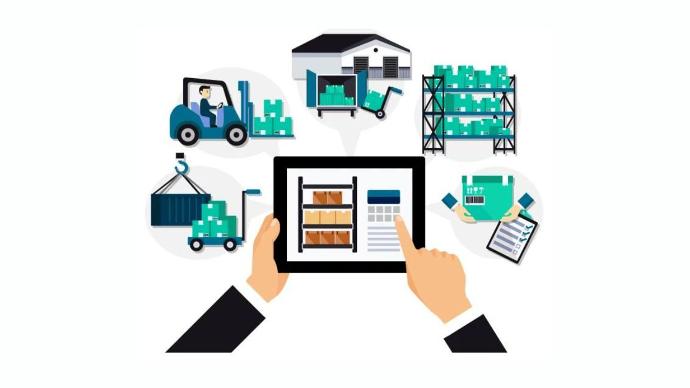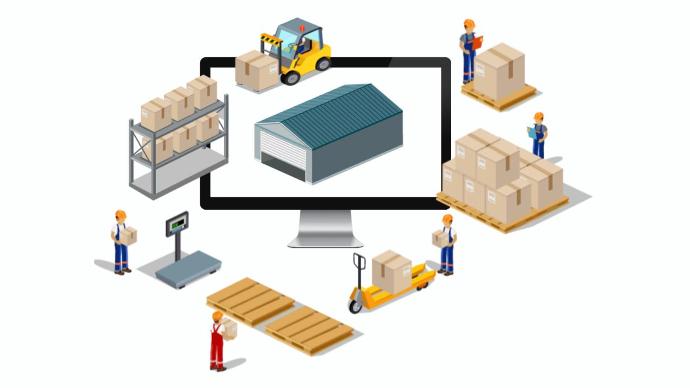Let's See the Benefits of Inventory Management Software/
Stock Management or Warehouse Management
Everyone has inventory management challenges at some point. Whether you’re a manufacturer or wholesaler or sell directly to customers, it’s easy to get bogged down in paperwork and lose track of stock. Because inventory is such an important factor for businesses of all sizes, solutions are available to help streamline processes, optimize space and prevent loss from obsolete stock.
The benefits of inventory management in your business are many and varied. Inventory management can have a positive impact on your business in multiple ways. It will save you time, reduce the risk of losing stock, cut down on unnecessary spending, and even make your company look more professional by automating document processes. Here are Eight benefits of inventory management in your business that will pay dividends in the long run.

1. Inventory Management System Helps to Track Each Inventory Movement:
Inventory management systems create a centralized database where information is stored. This includes the details of the location of each item, the quantity, the value, and its expiry date.
This information can then be shared across multiple departments and even with third parties, such as suppliers, landlords, or governing bodies. This can help businesses track inventory movements at a glance.
It might reveal that stock is being sold from several locations, so additional stock may not be necessary. Inventory management assists businesses track down items that have been misplaced. When an item is scanned, the system will display the last known location also.
2. Stock Management Software Helps Prevent Loss of Stock:
Stock management systems also come with loss prevention features to help you keep track of items that have been misplaced.
Some systems have barcode scanners to track items as they are moved around in the warehouse. Others have location tracking system that lets you know where items are in real time. This can be especially useful in large warehouses with multiple floors. Inventory management prevent stock loss through RFID tags, which can be attached to high-value items.
It allows you to track the goods through the warehouse. If the item is ever misplaced, you’ll know where it is. If it is out of place, it’s possible to remotely deactivate the tag, preventing the item from being removed from the premises.
3. Forecast Inventory for Better Management:
Inventory forecasting is necessary to restock items as and when needed. This is important when items are sold quickly or are unpopular. You might end up with dozens of unsold units that need to be discarded.
Forecasting can help you to avoid the unwanted situation arises in business by allowing you to plan to restock in advance. This prevents embarrassing shortages and ensures you don’t run out of stock. Because, you don’t want too much or too little in stock.
4. Warehouse Management Automates Accurate Reordering Processes:
A highly sophisticated warehouse management system can track details like when you need to reorder items and how many you need. It can also track consumption and sales, so you know how much of an item has been used and what has been sold.
This information can then be used to automatically reorder stock. You can even set up rules, so if one type of item runs low, you can automatically reorder other items. This can save you time and effort, leaving you more time for other tasks and also prevents you from having to manually reorder multiple items in quick succession.

5. Inventory Management Improves the Supply Chain:
An effective & efficient warehouse management system can help into improves the supply chain by increasing the speed at which goods are moved from supplier to warehouse and finally to customers.
You can set up rules for the type of goods that take longer to move and when they should be shipped. This support you to avoid overstocking and ensure items are delivered promptly.
6. Inventory Management Helps Sell Outdated Stock:
In advanced Warehouse management software, there is the provision to manage stock out based on FEFO (First Expiry, First Out).
When items are scanned before being shipped to customers, the system auto-suggests the item which is going to expire soon. Prevents them from being Expired within your warehouse and it will save a lot of money.
7. Easily Manage Multiple Warehouses & Locations:
An inventory management system can help you track inventory across multiple warehouses or locations. Also use it to keep an eye on products being shipped from multiple locations.
Due to this feature, you can identify any issues or bottlenecks before they become serious problems. You can also check stock levels remotely, so if you’re not at the warehouse, you know what items need to be reordered.

8. Inventory Management Makes Businesses More Profitable:
Keeping track record of inventory before they run out, you won’t have to buy more than necessary. It saves your money on inventory, shipping, and storage costs, helps you to avoid paying for expedited shipping or special deliveries.
This system designed in such a way that it identify items that are no longer in demand so you can mark them as obsolete. This means you can sell these items at reduced prices or offer them for free. It is important to understand when products are at the end of their lifecycle so you can replace them with new merchandise.
Conclusion
For smooth running of business without any hindrance, Inventory management software is beneficial. It helps you track stock, forecast inventory, reorder items, and plan for future sales. IManage multiple warehouses and locations, track the movement of goods, and prevent loss of stock.
An efficient stock management system can help you make your business more profitable by cutting costs, reducing the risk of loss, and improving the supply chain.